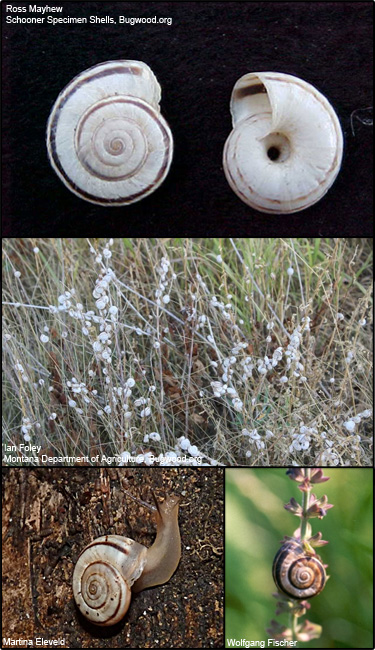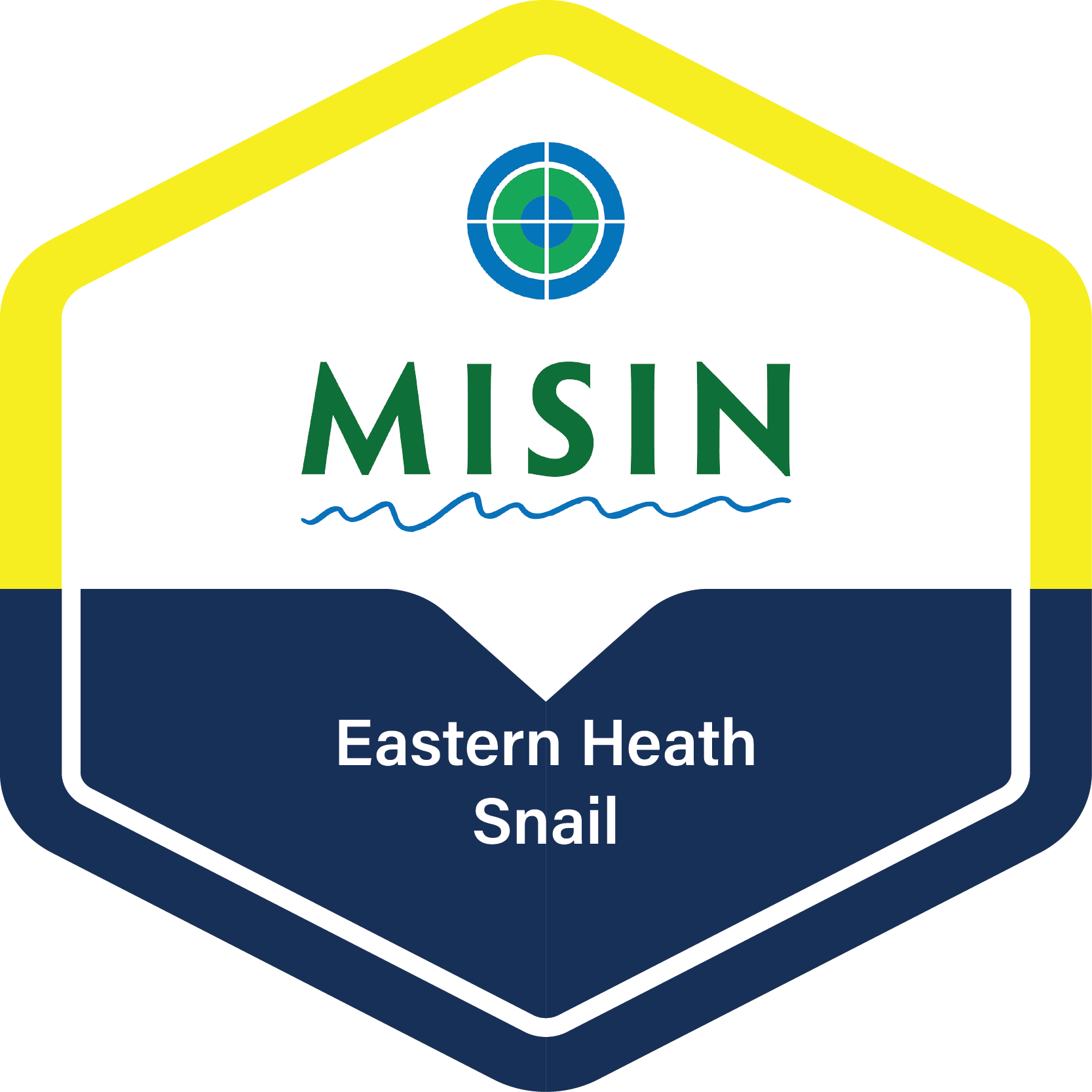Eastern heath snail (Xerolenta obvia)
 Synonyms: Helicella obvia
Synonyms: Helicella obviaCommon Names: Heath snail, Heath helicellid
Description: First detected in Michigan in 2001.
Identification: Maximum height of 16 mm and a diameter of 22 mm, which 5-6 whorls. Opaque shell is very flattened for a helicid-shaped shell. Body whorl turns downward. Aperture is oval, thin and brittle. Shell color is white with dark brown spiral stripes.
Habitat: Native to Europe and Asia Minor. Found in dunes, meadows and rocky hillsides. During the summer, it is only active at rainfalls and high humidity, more active in winter season.
Reproduction: Two reproduction periods in a year, spring and autumn. Clutches of 25-40 eggs (1.2-1.5 mm) are laid inside a 15-25 mm deep hole in the soil, which is closed afterwards. Maturity is reached before the shells are fully grown. Life span is 2-3 years.
Similar species: Leaf Snails (Hygromiidae), Heath snail (Helicella itala).
Monitoring and rapid response: Hand collection; use of deadline granular molluscicide. Credits: The information provided in this factsheet was gathered from University of Florida Terrestrial Mollusc Tool, AnimalBase and USDA APHIS.
Individual species images that appear with a number in a black box are courtesy of the Bugwood.org network (http://www.invasive.org).Individual photo author credits may not be included due to the small display size of the images and subsequent difficulty of reading the provided text. All other images appear courtesy of Google (http://images.google.com).
Common Name: | Eastern heath snail |
Scientific Name: | Xerolenta obvia |
Family: | Hygromiidae (Leaf snail) |
Habit: | Mollusks |
 View Species Course |
|
